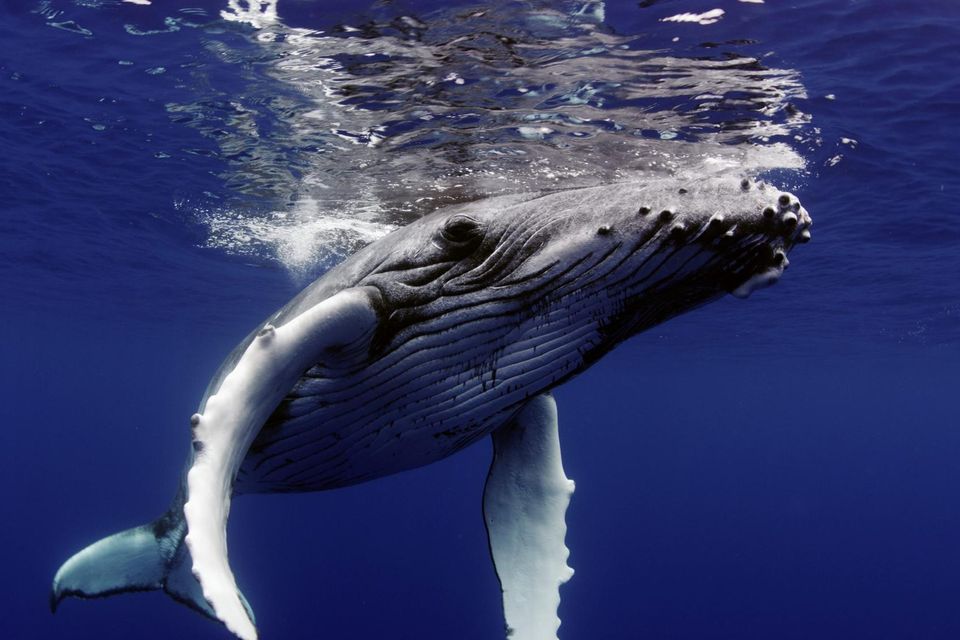The Witness is a Whale: How human savagery and greed have led to the near extinction of these sensitive and intelligent mammals
The Witness is a Whale tries to weave too many different strands into too short a running time. Photo: BBC/Terra Mater Factual
It’s a strange title, The Witness is a Whale (BBC4, Tuesday, 9pm). The meaning of it only becomes apparent about a third of the way into this frustratingly disjointed documentary.
The lifespan of whales varies greatly, depending on the species, but one, the bowhead whale, can live for up to 260 years.
Velvet-voiced narrator Jonathan Pryce puts it in context when he says there are still bowheads swimming in the oceans today that were born before Napoleon.
It’s a mind-blowing thought. If a human lived for that long, imagine the things he or she would witness. Long-lived whales have been witnesses to their own destruction and demise, slaughtered in huge numbers, hunted to the brink of extinction.
They’re intelligent and sensitive creatures. There are numerous examples of them grieving for their dead offspring. There’s much evidence that they feel emotions such as empathy.
If they’re capable of feeling the same things humans feel (or most humans, anyway), there’s nothing to suggest they don’t remember in the same way humans do.
They’d recall a time long ago, when the oceans were teeming with others of their kind, and teeming with many different kinds of creatures, all of them interdependent on one another.
A century ago, whales were the rulers of the deep. They were so numerous, they shaped the very ocean and the land. Then industrial whaling arrived.
Steamboats fitted with a diabolical, new-fangled invention, the exploding harpoon, changed everything. By 1930, 90pc of bowheads had disappeared from the water.
"By 1930, 90pc of bowheads whales had disappeared from the water”
The Witness is a Whale could have been one of several types of documentary. It could have been a straightforward paean to the power and beauty of these magnificent creatures.
It could have been a history of the human savagery and greed that saw whales relentlessly hunted and killed for their oil (sperm whale oil, the most valuable of all, was used in the production of cars and nuclear weapons up until the 1950s), leaving oceans that were once full almost empty.
It could have been an uplifting tale of recovery, and of how the whalers who once went after these creatures have now become their protectors.
Many traditional whaling communities long ago discovered the tourism benefits of whale-spotting as opposed to whale-killing.
The best approach would probably have been to concentrate on how a small group of courageous Soviet scientists got hold of secret documents, which were supposed to have been destroyed, detailing how the USSR engaged in the illegal slaughter of tens of thousands of whales during the Cold War, substantially reducing the whale population in the 1950s and 60s, then covered its tracks by presenting the International Whaling Commission (IWC) with falsified records.
In the event, it tries to weave all of these strands into its 50-minute running time. The result is a film so maddeningly uneven, I thought the BBC was showing a heavily-edited version — something it’s been known to do with, for instance, lengthy PBS documentaries.
But it seems this cut is the only one there is. It’s watchable, yet should have been much more than that.
The Witness is a Whale: Three stars














